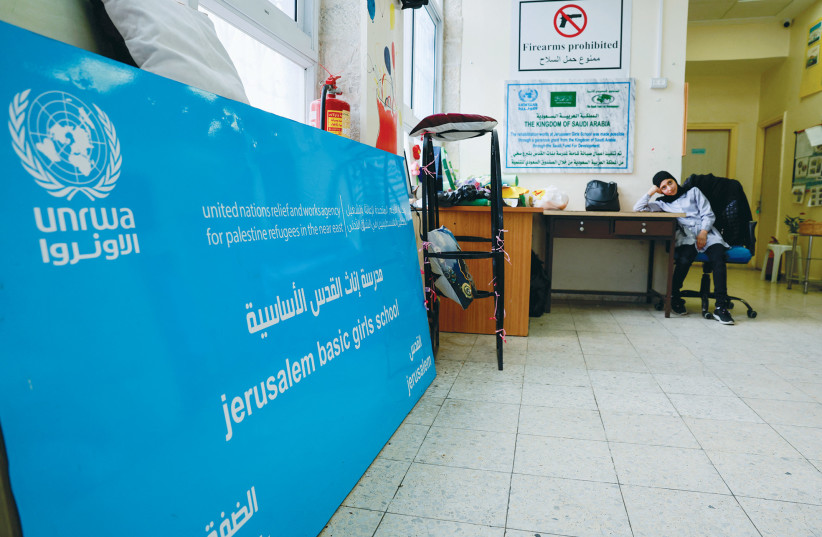True change begins with the Palestinian education system
With all the death, destruction, and hopelessness in the air and the glimmer of hope of a hostage deal, one point in Prime Minister Benjamin Netanyahu’s “day after” draft plan may offer the key to an actual long-term state of non-conflict with the Palestinians and the region at large: education.
The Yom Kippur War shaped all the lives between the river and the sea, including for Palestinians in the West Bank and Gaza, in all aspects of life: ideology, education, and trauma. As such, in the current war, we are experiencing a similar phenomenon without knowing how it will shape us over the next 50 years.
In the long run, one of the principal ways to effect change in outlook past the current trauma is through education.
Making a change through education
In the case of Gaza, this means, to the extent that it is possible, reversing years of radicalization and indoctrination by Hamas, who used UNRWA as a vehicle.
One can argue that this must be done on the Israeli side as well, perhaps even more after October 7, when it seems like any shred of a desire for dialogue went out like a candle that horrific Saturday morning. That is true, but that is a different argument.

Radicalization in education is not only intense in Gaza; it is old, so old that it is thoroughly entrenched in the hearts and minds of Gazan Palestinians of all age groups. While some Gazan elements are in dialogue with Israelis and strive for coexistence, and their fight is noble and brave, they are a minority.
After the Six-Day War of 1967, Palestinian Muslim Brotherhood leaders in Gaza were freed from persecution by Egyptian leader Gamal Abdel Nasser. They began flourishing in the enclave and strengthening their hold on the community. This included everything social and communal, including mosques, schools, and educational activities, all oriented around Islamic values and led by Ahmed Yassin. The more secular-nationalist Palestinian Liberation Organization seemed the more significant threat to Israel, so these leaders were given free rein.
It began as a religious-social organization tasked to shape Palestinian society with Islamic values and provide for the community. Hamas, established in 1987, was the armed iteration of it, created on the heels of the First Intifada.
Hamas invested time, energy, and money in higher education, particularly universities, directly influencing the next generation; this is a strategic tool, years of hard work that bore fruit in such widespread support for Hamas. The terrorist group’s military success is wholly eclipsed by its social and societal success.
When Hamas seized Gaza from the Palestinian Authority in a bloody coup in 2007, it realized how much of an asset UNRWA is and used it to spread its message.
When Israeli officials now talk about replacing UNRWA, this is what they mean. There are very valid arguments for keeping it running, including for the aid it provides, and it is a complicated issue, but this is where the Israeli stance is rooted; UNRWA is a lost cause.
Netanyahu’s plan for “the day after the war” in Gaza calls for the civil authorities to be handled by local figures, ones that are unidentified with states or terrorism-supporting bodies. It also calls for a plan that would deal with religion, education, and welfare – effectively undercutting what Hamas has done, an ambitious goal. In the plan, UNRWA would cease operations and be swapped with “responsible” international aid organizations.
Amid all this hopelessness, this particular section of the plan offers a legitimate and realistic way forward, a genuine olive branch in the long-term sense.
Not discounting the Palestinian narrative and its history, a radicalized Islamist society in Gaza is what birthed Hamas and rained upon Israel the Nukhba fighters and those who joined in, committing the worst massacre against Jews since the Holocaust. This radicalized society has been dysfunctional for years and living conditions for Palestinians have continually worsened by the day.
In insisting on this essential, core change to Palestinian society, the plan effectively says: ‘This is how we move forward; it starts with education.’ To say that the Palestinians should accept it is beyond our reach, but it is something our government must continue to insist on as hostage deal talks continue.
It is the only way to make real, mindful change.





Comments are closed.